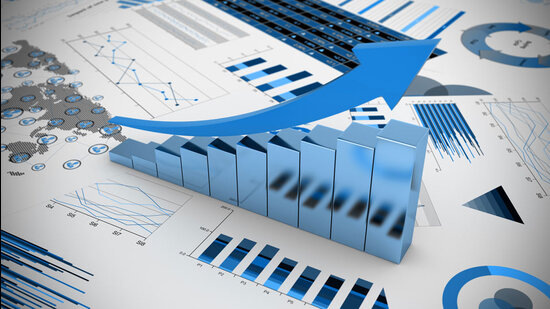For better policymaking, pay more attention to the role of economists
The health of the economics discipline matters a great deal as the ideas of economists have a significant impact, both when they are right and wrong
The end of the Covid-19 public health emergency has thrown the spotlight on the policy response to the crisis. Most governments, including that of the United States (US), bungled in their response to an unprecedented pandemic, the former White House chief medical officer Anthony Fauci said in a recent interview to the New York Times. Governments should have taken into account the economic costs of keeping schools and businesses shut, he argued.

“I’m not an economist,” Fauci said in the interview. “...The surgeon general is not an economist. So we looked at it from a purely public-health standpoint. It was for other people to make broader assessments — people whose positions include but aren’t exclusively about public health. Those people have to make the decisions about the balance between the potential negative consequences of something versus the benefits of something.”
It is not just the US that eschewed a cost-benefit analysis in imposing and extending lockdowns. Most governments across the world chose to lean on epidemiologists and doctors while ignoring contrary voices among economists. In the early days of the lockdown, one economic advisor to the Indian government complained to me about the excessive reliance on under-cooked epidemiological models. In other parts of the world, such complaints were often voiced in public but were ignored.
Why did economists have so little influence on such momentous decisions?
The answer perhaps lies in the growing disenchantment with economists across the globe. To win back public trust, economists will need to address three key issues that have eroded their influence over the years.
The first issue relates to transparency. Economists’ complaints about epidemiological models would have been taken more seriously if economists had been more transparent about the limitations of their own analysis. Economists involved in the business of policy making and forecasting have often been unwilling to highlight the limitations of their prescriptions and forecasts. They lead the public astray with their confident pronouncements, and are often unapologetic when they get things wrong.
If economists are to be seen as a responsible and professional tribe, they must be unafraid to outline the limited powers of economic analysis. The models that economists use to make sense of a complex world are often as imperfect as the ones that epidemiologists used to track the spread of a new virus. Hence the results of their modelling are, at best indicative in nature. This must be clearly communicated to non-economists in a language they understand, not in economists’ tribal jargon.
The second issue relates to the political economy of economic advice. When not advancing the interests of their particular bank or industry lobby, macroeconomists and policy economists are often found propagating their pet political agendas in the garb of scientific advice. Some do this out of genuine ideological commitment. Others do this because they are well-trained to recognise which side their bread is buttered on.
There are new inducements in the age of big data. Since access to most large datasets is tightly controlled by a few corporations and bureaucrats, such access can be weaponised to favour economists who may be willing to toe the line of the data controllers. What happened when two researchers were given access to the Employees Provident Fund Organisation (EPFO) database is indicative of this. Some critical findings relating to the limitations of the database didn’t come out in the public domain while publishing the results of the study. Large randomised controlled trial programmes, where economic researchers work with government bureaucrats to design and test an economic intervention, pose similar risks. Unless economists develop some kind of a self-regulatory mechanism to deal with such inducements, it may not be possible to prevent political and intellectual capture.
The third issue is excessive groupthink. Unlike in other social sciences, top economics schools across the globe use the same textbooks. Academic economists are incentivised to compete for a slot in the top five journals. So a handful of textbook writers and journal editors end up determining mainstream wisdom. Since the demi-gods of the profession use a limited toolkit – of mathematical and statistical models – to analyse the world, most economists remain unexposed to other analytical tools.
Things have changed somewhat in recent years. A growing number of economists have begun embracing other methods – including case studies and ethnographies – to study economic issues. Some are now open to collaborating with political scientists or climate scientists. But this section is still a minority in an otherwise insular profession.
All of this would not have mattered if economic ideas were inconsequential. But as John Maynard Keynes pointed out many years ago, the ideas of economists have a significant impact, both when they are right and wrong. Keynes’ own ideas helped bring about stability in the international economic order in the aftermath of World War II. The ideas of another economist, William Beveridge, helped establish the modern welfare State. The ideas of the economist couple Jagadish Bhagwati and Padma Desai helped sow the seeds of India’s economic reforms programme. At the same time, bad economic ideas led to the excesses of communism in China and market fundamentalism in Latin America in the 20th century. The health of the economics discipline matters a great deal. We need to pay more attention to it.
Pramit Bhattacharya is a Chennai-based journalist.
The views expressed are personal.
All Access.
One Subscription.
Get 360° coverage—from daily headlines
to 100 year archives.



HT App & Website







